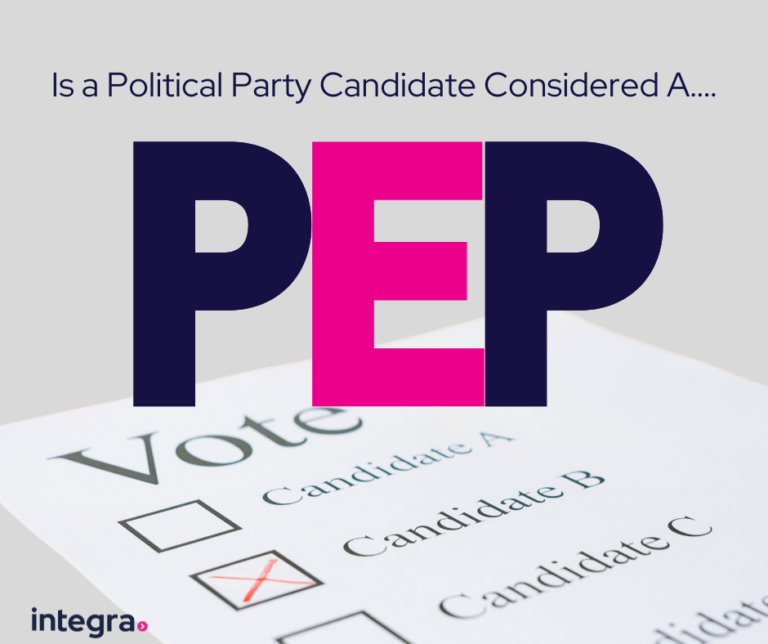

Is a Political Party Candidate Considered a Politically Exposed Person(PEP)?
In the realm of Anti-Money Laundering (AML) compliance, the identification of PEPs is a critical task. PEPs are individuals who hold prominent public positions, making them vulnerable to corruption and financial abuse. But the question remains: if someone is campaigning for an election or listed as a member of a political party, should they be classified as a PEP?
Understanding the Definition of a PEP
The Financial Action Task Force (FATF) defines a PEP as an individual who is, or has been, entrusted with a prominent public function. This includes heads of state, senior politicians, judicial or military officials, and executives of state-owned enterprises or government agencies, among others. Importantly, a PEP designation is not permanent; individuals cease to be PEPs after they leave office, though the FATF suggests maintaining enhanced scrutiny for some time after.
With the island of Aruba’s upcoming political elections, let’s look closer at the above question closer from Aruba’s perspective.
Context: Aruba’s Political Landscape
Aruba is a small island nation with a close-knit population. Many citizens are connected, either through family ties, professional networks, or social circles. In such an environment, political participation is often common, with individuals actively involved in campaigns or political party activities.
However, not all politically active individuals meet the FATF’s criteria for being classified as PEPs. Simply being on a political party list or campaigning for an election does not automatically make someone a PEP. The key distinction lies in the level of public trust and power they are expected to wield.
Political Party Candidates and PEP Classification
In Aruba, if an individual is only campaigning as a candidate for a political party, they do not immediately qualify as a PEP. The person would only be designated as a PEP once elected to a senior political office or appointed to a public position that aligns with the FATF’s PEP guidelines. It’s also essential to consider the risks associated with political exposure in a small island like Aruba. Campaigning candidates, unless elected, generally fall outside these criteria. However, if they hold a current public office while campaigning for re-election, they will remain classified as a PEP during and after the election cycle.
Are Campaigning Candidates High-Risk?
While a political candidate may not technically be a PEP, there are scenarios where financial institutions or businesses may still categorize them as high-risk for AML purposes. This often depends on various factors, such as:
- The nature of the campaign financing (e.g., significant donations from unknown sources).
- The candidate’s connections to current PEPs.
- The political environment, especially in cases where there is a high level of corruption or political instability.
AML compliance professionals may flag individuals on a case-by-case basis based on these risks, even before they assume a formal PEP status.
Aruba’s AML Regulations and PEP Monitoring
Aruba follows international AML standards as set forth by bodies like the FATF. As such, the country requires supervised service providers to implement enhanced due diligence (EDD) when dealing with PEPs. This includes:
- A detailed assessment of the source of funds.
- Continuous monitoring of the PEP’s financial transactions.
- Increased scrutiny of any business relationships involving a PEP.
Campaigning candidates in Aruba may attract some additional attention from AML teams, especially in high-stakes elections. However, until they hold a political office or position of influence, they are not formally designated as PEPs under AML frameworks.
Managing the Risks
Given the interconnected nature of small islands like Aruba, AML compliance teams should take a risk-based approach when dealing with individuals involved in politics. Even if a candidate is not classified as a PEP, their involvement in politics may still warrant enhanced due diligence based on the level of influence or authority they hold.
Conclusion
In Aruba, simply being a political party candidate or involved in a campaign, does not automatically classify someone as a PEP. The PEP designation is reserved for those who hold or are entrusted with prominent public functions. AML professionals should focus on identifying and monitoring individuals who meet this criterion while considering the nuances of local contexts like Aruba’s interconnected population.
By maintaining a clear understanding of the FATF guidelines and applying a risk-based approach, compliance teams can effectively manage potential risks associated with political exposure, even in small and closely-knit communities like Aruba.
Contact us for more information on how your company can benefit from partnering up with Integra.
